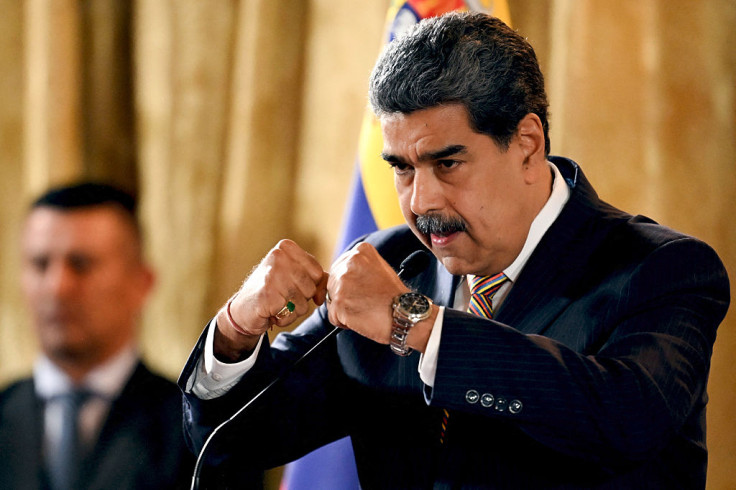
U.S. officials conducted a war game during Donald Trump's first term to assess what might follow the fall of Venezuelan leader Nicolás Maduro with ominous results, according to by The New York Times.
The unclassified exercise predicted that military factions, political groups, and armed guerrillas would go on to compete for control of the South American, producing sustained instability across the country.
The findings are resurfacing as the Trump administration intensifies military operations around Venezuela and signals that a policy shift could involve direct pressure on Maduro to leave office. Trump has described the Venezuelan leader as an "outlaw" and said this week that he would not rule out a ground invasion aimed at stopping what he calls the regime's role in drug trafficking.
Since early September, U.S. forces have carried out more than 20 strikes on boats near Venezuela's coast, which the administration says were transporting drugs, killing at least 80 people.
Analysts cited by the Times warn that a transition could mirror previous U.S.-backed interventions in Iraq, Afghanistan, and Libya. Phil Gunson of the International Crisis Group said the concern is that "they don't appear to have any serious plan for what happens afterward," adding that expectations of a smooth transition are "fantasy."
Douglas Farah, a national security consultant who participated in several U.S. war games, wrote after a 2019 exercise that Maduro's removal by coup, uprising, or foreign intervention would trigger "chaos for a sustained period of time with no possibility of ending it." He said in an interview that "you can't have an immediate seismic shift" without severe consequences, including a collapse of command structures.
Recent assessments by retired Venezuelan officers reinforce the scenario of internal fracture rather than unified resistance. In comments to NTN24 earlier this week, former officer José Antonio Colina said, "Venezuelan soldiers will not sacrifice themselves for Nicolás Maduro," arguing that any U.S. military action would prompt the armed forces to withdraw support. He said most negotiations promoted by the government are designed to "buy time."
Earlier reporting from the Miami Herald in late October quoted exiled Venezuelan officers who said that defending against a U.S. attack "would be suicide," describing an armed forces with roughly one-third operational capacity, minimal air readiness, and a communications system they say has "practically collapsed."
© 2025 Latin Times. All rights reserved. Do not reproduce without permission.






